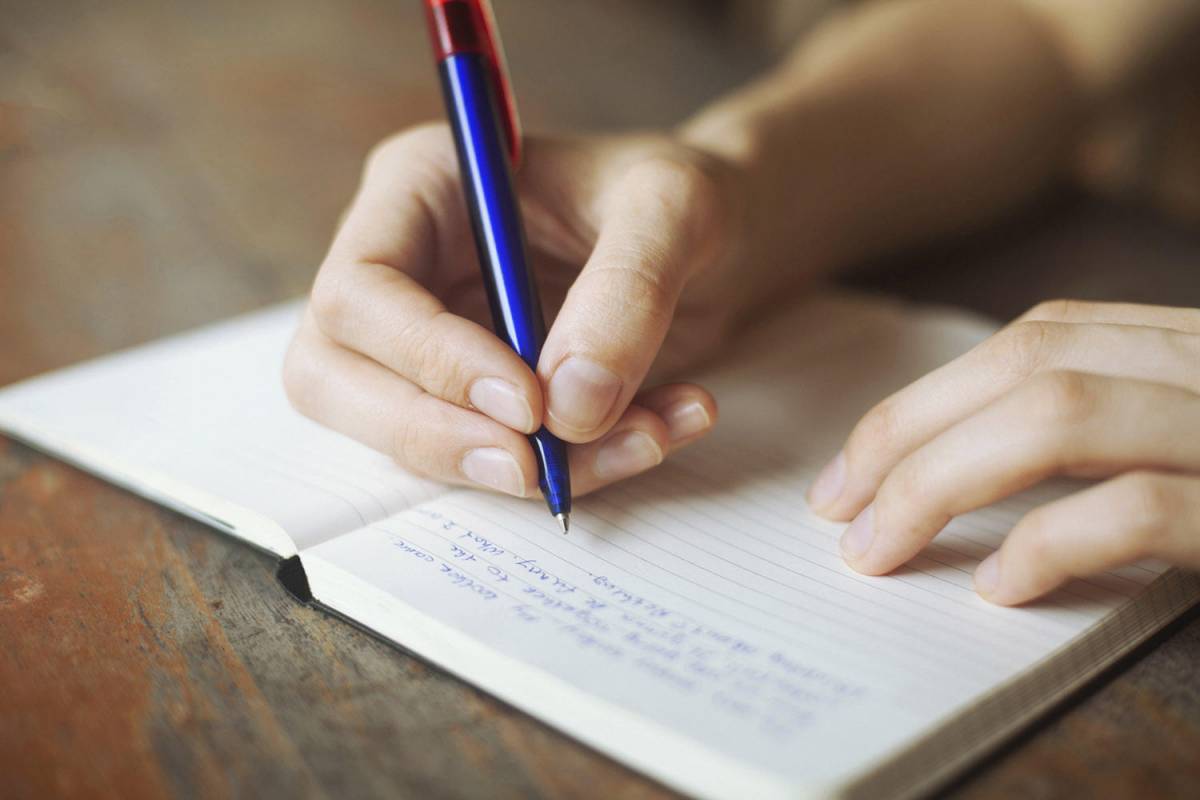Some people know this month simply as November, but for thousands of writers worldwide, November is National Novel Writing Month. A month in which they challenge themselves to write a 50,000-word novel in just 30 days. Crazy, right? Yet, this is the 18th year that NaNoWriMo has been around and with each year more and more writers decide to take up the challenge.
I started participating in NaNoWriMo in 2008, when I was just 14-year-olds, and have been participating on and off ever since. I’ve reached the goal every year, though some years it has been a real struggle. It’s difficult enough for writers who have never attempted to do this before, or even to write a novel before, to approach this daunting task. But it’s a difficult task even for writers like me, who have been doing this for years and have experience with it. It’s not an easy challenge, but through the years I’ve picked a few tips and tricks that help me not only to reach my word count goals but also to be a better writer.
1. Don’t edit!
This is kind of an obvious one. It’s probably what you’ve been reading everywhere. Yet, it’s funny how difficult it is for people to turn off that self-critical part of themselves as they begin writing their novel. It’s particularly difficult, I feel, for first time NaNo novelists. But it’s something that’s almost essential to the experience.
The point of NaNoWriMo is not to write a flawless first draft of a novel. In fact, I don’t think that’s the point of any first draft. First drafts are meant to be about the story, rather than anything else. It’s about getting everything out there. I think the reason why many writers struggle to write a first draft is because they get so hung up on perfection and details. But the good thing about NaNoWriMo is that what you have to get hung up on is your word count. So if you start worrying about perfection and details, your word count is going to suffer.
So first time NaNo writers, I know it’s difficult to stop being a perfectionist, but trust me. Allowing yourself to make mistakes and to not write perfectly will actually help you in the long run. Not just with your word count but also post-NaNoWriMo when you hopefully have a workable draft that you can edit into perfection.
2. Don’t let it consume your life
There will probably be a lot of people who say that during NaNoWriMo they forsake a lot of things; whether it’s proper dietary habits, sleep, socialisation or any number of things. I mean, whatever works, I guess, but I would advise against this.
Not only is it kind of unhealthy to do all of the above but to spend 30 days obsessing on your writing so much that you don’t have time for other tasks can kind of be a buzzkill for your writing itself. You need to allow yourself to be excited by your writing. You want to come to your writing with bright eyes and buzzing ideas because you’ve been away from it all day!
I’ve done NaNoWriMo when I’ve had little else to do and seen my word count suffer because I was too busy procrastinating a project that I had too much time for. This year, I’m doing NaNoWriMo when I’m so busy that I’ve actually started writing on my phone during my commute to work in the mornings and evenings. Not the most ideal or inspirational spot to do my writing, but I’m just that excited to work on my novel because I have so little time for it. I’m not saying that you should busy yourself with a thousand activities, but a middle ground is usually what works best.
3. …but write all the time
If you are like me and have barely any time to focus on your writing then you need to make the most of your time. That means writing every opportunity you get. I know as writers sometimes we tend to romanticise the task. We need the perfect setting, the perfect music, the perfect drink. Otherwise, the muse just doesn’t come! Well, NaNoWriMo has no time to waste for a muse. You need to write, and you need to write now.
More than that, you should probably be writing even when you’re not writing. Like, in your head when you’re making the walk from your tram to your office (like me!). You might forget some of it before you get the chance to jot it down, but you’d be surprised at the amount of things you retain. It ends up being really helpful when you do get the chance to start writing.

4. Plan Ahead
It’s kind of common sense that when you have some sort of an idea about where you’re headed in your novel, you tend to be more productive. This doesn’t mean you need to have plotted your entire project before NaNoWriMo started. This doesn’t mean that you need to have excessive timelines, maps, character sketches, etc. It can be simple things.
I’m not a planner, but I try to take five minutes at the end of my writing day to jot down a few things I’d like to cover in the next part of my story. This means that when I come back to my writing I don’t have to spend a half hour thinking about what I should write next. I can just jump straight to it.
It also helps to keep a list of names by your side at all times. Whether these are names of characters or towns or other things. This means that every time you meet a new character (especially in the beginning stages of your novel) you’re not spending an hour on behindthename.com trying to find the perfect name. It means that you have a list of names that could potentially work for characters and you just strike through it as you write.
5. Try new things
For me, the best thing about NaNoWriMo has been the ability to experiment with my writing. When I started off at the age of fourteen, I had never written a novel before, so just the act of doing that was brand new. Each year since then, I’ve reached new heights in my writing. Whether this is through trying my hand at a new genre (so far I’ve written young adult, political thriller, fantasy, science fiction, literary fiction, short stories, and speculative fiction) or just trying something completely different.
For example, for my 2015 NaNo novel, my main character’s gender was never mentioned. I wanted to see if that was something I could do believably and I succeeded. In subsequent drafts, I changed that part of my novel because it ended up being unnecessary, but it challenged me as a writer and allowed me to try different things. In the same novel, I also tried to write without the use of dialogue. This actually ended up being more challenging, and I gave up about halfway through. That endeavour may not have succeeded but it strengthened my prose, and now helps me rely less on dialogue to move my story along.
For me, experimenting with my writing is a lot of fun and challenging myself in different ways helps me become better. NaNo is probably one of the best times to do this. You’re already allowing yourself to not be perfect (I hope!) so why not let yourself try new things, make mistakes, and push some boundaries?
6. Write how you need to write
Different things work for different writers. As you write more, you’ll gain more experience, and you’ll learn what works for you. So take every bit of advice with a grain of salt because what works for me, won’t necessarily work for you.
Now I’m going to get back to writing my novel. You should too!
Some of the coverage you find on Cultured Vultures contains affiliate links, which provide us with small commissions based on purchases made from visiting our site. We cover gaming news, movie reviews, wrestling and much more.



